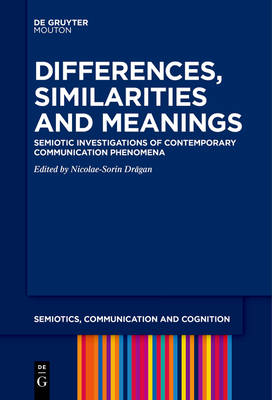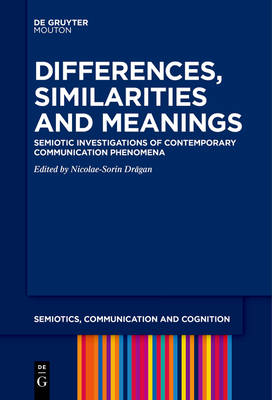
- Retrait gratuit dans votre magasin Club
- 7.000.000 titres dans notre catalogue
- Payer en toute sécurité
- Toujours un magasin près de chez vous
- Retrait gratuit dans votre magasin Club
- 7.000.0000 titres dans notre catalogue
- Payer en toute sécurité
- Toujours un magasin près de chez vous
Differences, Similarities and Meanings
Semiotic Investigations of Contemporary Communication Phenomena
Description
In a world of global communication, where each one's life depends increasingly on signs, language and communication, understanding how we relate and opening ourselves to otherness, to differences in all their forms and aspects is becoming more and more relevant. Today, we often understand the differences in terms of adversity or opposition and forget the value of the similarities.
Semiotic approaches can provide a critical point of view and a more general reflection that can redefine some aspects of the discussion about the nature of these semiotic categories, differences and similarities. The dichotomy differences - similarities is fundamental to understanding the meaning-making mechanisms in language (De Saussure, 1966; Deleuze, 1995), as well as in other sign systems (Ponzio, 1995; Sebeok & Danesi, 2000). Meaning always appears in the "play of differences" (Derrida, 1978) and similarities. Therefore, the phenomena of similarities and differences must be considered complementary (Marcus, 2011).
This book addresses and offers new perspectives for analyzing and understanding sensitive topics in the world of global communication (humanities education, responsive understanding of otherness, digital culture and new media power).
Spécifications
Parties prenantes
- Editeur:
Contenu
- Nombre de pages :
- 314
- Langue:
- Anglais
- Collection :
- Tome:
- n° 30
Caractéristiques
- EAN:
- 9783111257877
- Date de parution :
- 08-05-23
- Format:
- Livre broché
- Format numérique:
- Trade paperback (VS)
- Dimensions :
- 156 mm x 234 mm
- Poids :
- 444 g

Les avis
Nous publions uniquement les avis qui respectent les conditions requises. Consultez nos conditions pour les avis.





